A disease outbreak is a sudden and unexpected increase of cases of a particular disease. The time that the disease lasts can vary and it can cover a small community or several countries.
Below are some of the most recent disease outbreaks from around the world.
1. Streptococcus A (Strep A)
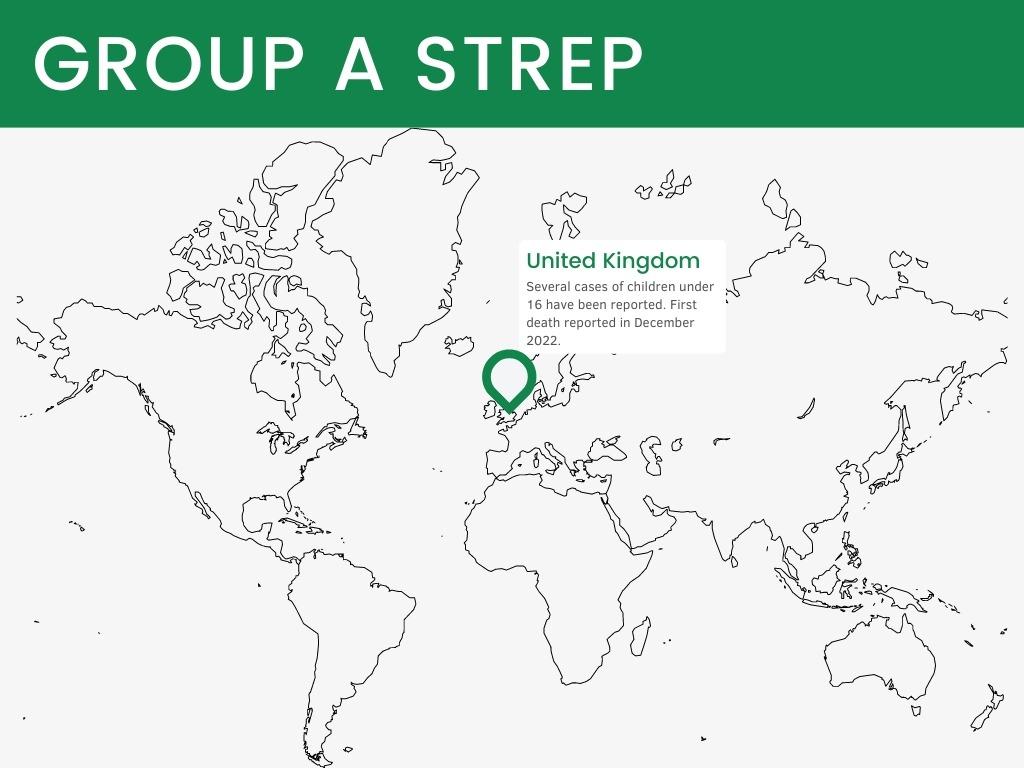
Affected Areas:
England, Scotland, and Northern Ireland.
Cases:
The first recent reported case of Invasive Group A Streptococcus (iGAS) was in late November, 2022. The infected was a child aged below 10. Then, as of Saturday, the 10th of December, 2022, iGAS had caused 16 deaths.
Details:
The symptoms of Strep A include swollen glands, fever, sandpaper-like rash, sore throat, scarlet fever, and pain when swallowing.
The symptoms of iGAS, which is a severe form of Strep A, include high fever, severe muscle aches, vomiting, diarrhoea, localised body pain, redness around a wound, and toxic shock syndrome.
Strep A can cause other conditions, such as Impetigo (a contagious skin infection) and Pneumonia (inflamed air sacs in both lungs).
How do people catch Streptococcus A (Strep A)?
Strep A bacteria is often present in a person’s throat or nose. It can be spread through coughing, sneezing, or if someone has direct contact with the bodily fluids of an infected person.
Some people may carry Strep A bacteria without having any symptoms, but they can still spread the bacteria on to others.
Severe Strep A (iGAS) occurs when bacteria gets into the blood, muscles, and lungs, which can cause the infected person to experience toxic shock syndrome.
2. Polio

Affected Areas:
New York and London.
Cases:
These details are sparse at the moment as the outbreaks are recent. This is the data we currently have:
New York:
1 case was confirmed in July 2022, after an unvaccinated adult developed paralysis. Hundreds more are thought to have caught Polio from this one case.
London:
No cases as of yet. Polio has been found in sewers 116 times through water testing since February 2022.
Details:
Detection of Polio in the sewers outside of both cities.
In London, all children aged 1 to 9 are to be offered a dose of the Polio vaccine in response to the outbreak.
How do people catch Polio?
The virus enters through the mouth, normally from hands infected with the stool of someone who has Polio.
Is there a vaccine for Polio?
Yes, there is a vaccination for Polio. You can book an appointment through The Travel Health Clinic to protect yourself against this disease.
3. Ebola Virus Disease (EVD)

Affected areas:
Mbandaka in the Democratic Republic of Congo
Cases:
5 deaths, 4 males and 1 female aged 9 to 48 years,
between the dates 23rd April and 3rd July 2022.
Details:
The outbreak stemmed from one case where the infected person was tested via a blood sample. EVD was detected on 21st April and an oral swab was taken on 22nd April after which EVD was confirmed.
How do people catch the Ebola Virus Disease (EVD)?
People generally catch EVD after having contact with an infected animal or person.
Is there a vaccine for Ebola?
There are currently no licensed or approved Ebola vaccines in the UK. All Ebola vaccines and treatments are currently undergoing development and testing in research laboratories.
4. Monkeypox

Affected Areas:
Europe, Africa, America, Eastern Mediterranean, and the Western Pacific.
Cases:
2103 cases reported between the dates 1st January and 22nd June.
Details:
Evidence has suggested that the recent Monkeypox outbreak originated in, or has links to, Nigeria.
How do people catch Monkeypox?
A person can catch Monkeypox if they’ve had skin-to-skin contact with an infected person, particularly if they’ve had intimate contact where bodily fluids are exchanged. The disease can also be caught from infected animals, such as rats and mice.
Is there a vaccine for Monkeypox?
Whilst there isn’t a direct vaccine for Monkeypox, there is a Smallpox vaccine being offered to people most vulnerable to the disease which has proven to be effective. Currently, you can only get a vaccine through your local NHS clinic if you are eligible. You can find out if you are eligible for the Monkeypox vaccination on the UK government website.
5. Severe Acute Hepatitis of Unknown Aetiology in Children
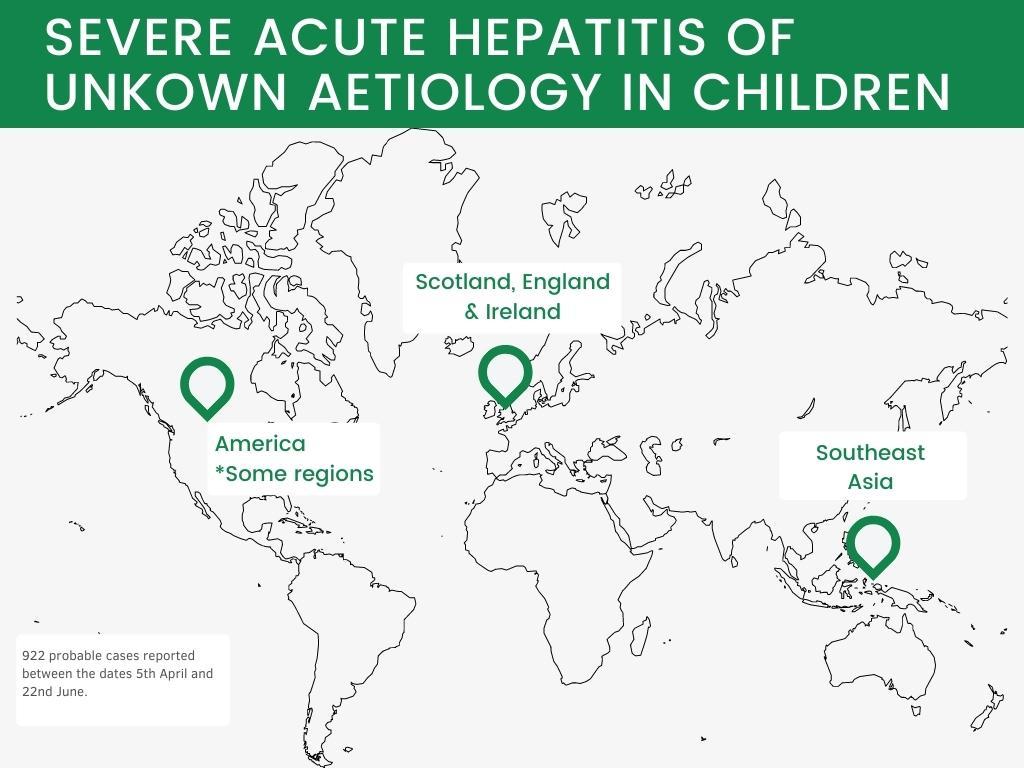
Affected Areas:
Scotland, England, Ireland, Southeast Asia, and some regions of America.
Cases:
922 probable cases reported between the dates 5th April and 22nd June.
Details:
Testing has excluded viral hepatitis types A, B, C, D and E and other identified causes of acute hepatitis.
Is There a Vaccine for Severe Acute Hepatitis?
Recent laboratory testing has excluded that this type of viral Hepatitis is A, B, C, D and E, meaning there is currently no vaccine available to prevent this disease.
6. Wild Poliovirus Type 1
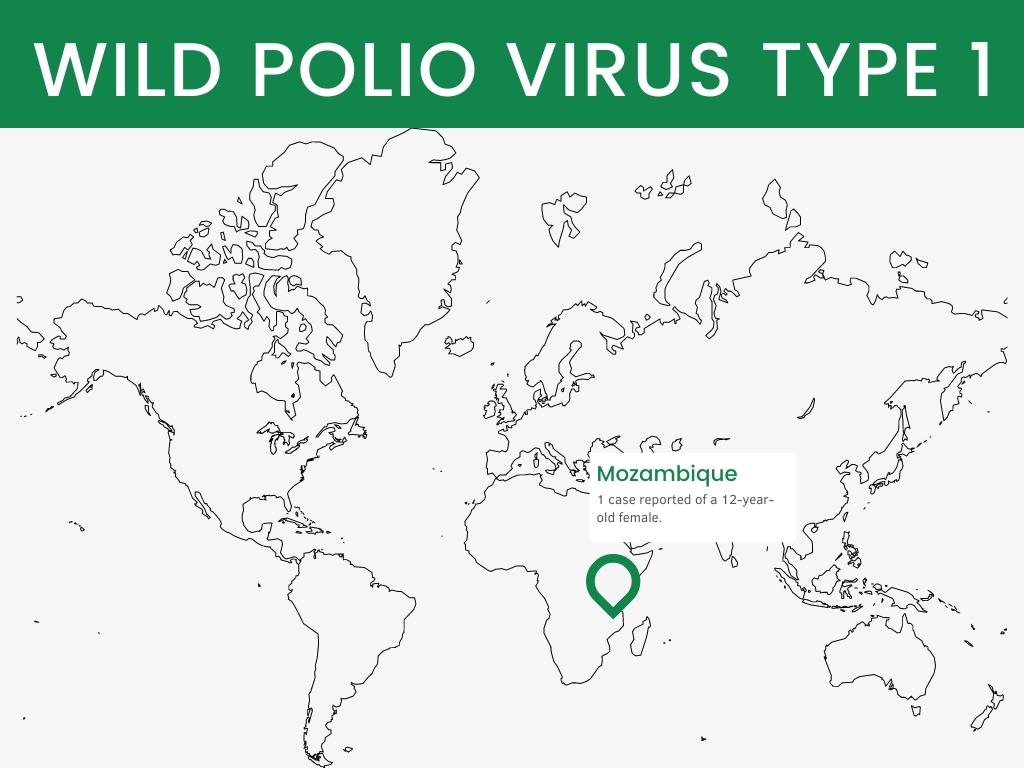
Affected Areas:
Mozambique.
Cases:
1 case reported of a 12-year-old female.
Details:
It is thought that the recent case could be linked to a strain that was circulating Pakistan in 2019.
Since the Mozambique case was a child the vaccine campaign is focusing on children.
How do people catch Wild Poliovirus Type 1?
A person can catch Poliovirus Type 1 by ingesting contaminated water or food.
Is there a vaccine for Wild Polio Virus Type 1?
Yes, the standard Polio vaccination will protect against this disease variant. You can book the vaccination through our online booking system.
7. Cholera (Asia)

Affected Areas:
Pakistan in South Asia.
Cases:
234 laboratory-confirmed cases reported between the dates 15th Jan and 27th May 2022.
Details:
There have been 31 cases reported from Balochistan and 25 cases have been reported from Punjab. However, there’s no evidence of a cross-border spread of the disease.
How do people catch Cholera?
Cholera is passed through faeces. It is usually spread when people drink contaminated water.
Is there a vaccine for the Asian variant of Cholera?
The good news is there is a vaccine for Cholera, meaning you can be protected against this disease. You can book your vaccine through our online booking system at the bottom of this page.
8. Cholera (Africa)
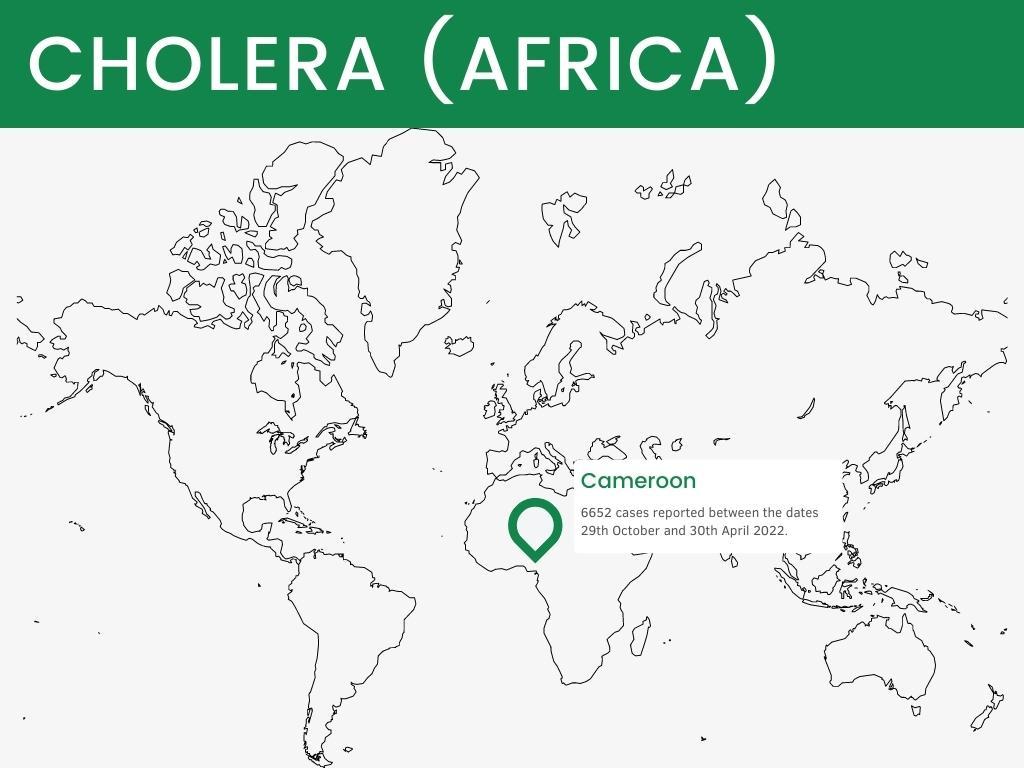
Affected Areas:
Cameroon in Central Africa.
Cases:
6652 cases reported between the dates 29th October and 30th April 2022.
Details:
There’s limited access to safe drinking water in some areas or Cameroon which increases the risk of catching Cholera.
Is there a vaccine for the African variant of Cholera?
Yes, the standard Cholera vaccination is enough to protect you against this variant. Book your vaccine through our booking system at the bottom of the page.
9. Crimean Congo Hemorrhagic Fever
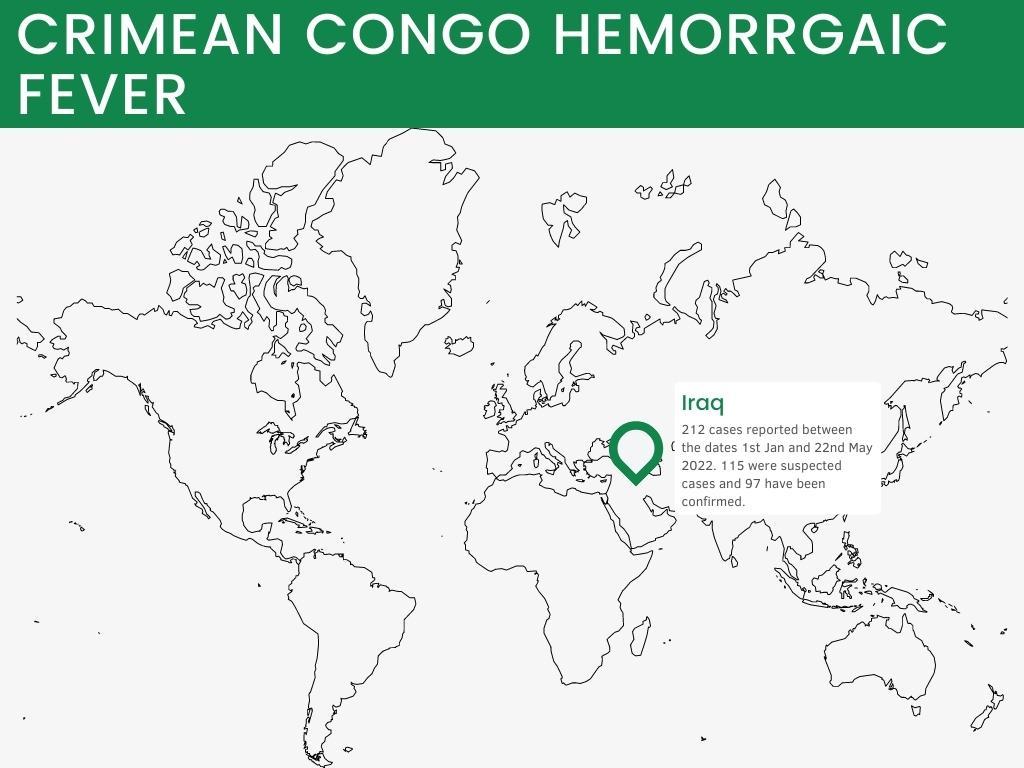
Affected Areas:
Iraq.
Cases:
212 cases reported between the dates 1st Jan and 22nd May 2022. 115 were suspected cases and 97 have been confirmed.
Details:
A lot of the reported cases were diagnosed early. When the early symptoms are diagnosed and treated, it is more likely the infected will survive.
How do people catch Crimean Congo Hemorrhagic Fever?
People can catch Crimean Congo Hemorrhagic Fever after being bitten by an infected tick or through having contact with the blood of an infected tick.
Is there a vaccine for Crimean Congo Hemorrhagic Fever?
There are currently no licensed or approved vaccines for Crimean Congo Hemorrhagic Fever. However, there is treatment available for those who fall severely ill that can be administered by hospitals.
10. Dengue

Affected Areas:
Sao Tome and Principe.
Cases:
103 cases were reported between the dates of 15th April and 17th May.
Details:
This is the first outbreak of Dengue in their country. No deaths were confirmed.
How do people catch Dengue?
People catch Dengue after being bitten by infected mosquitoes. They usually bite at dusk or dawn and are typically found near water in built-up areas.
Is there a vaccine for Dengue?
Unfortunately, there is no vaccine currently available for Dengue Fever for travellers. However, there is a vaccine for some people who live in a country that has been affected by the disease.
11. Influenza

Affected Areas:
North-Rhine Westphalia in Germany.
Cases:
One case was reported on 11th May 2022.
Details:
The disease was detected during routine sentinel surveillance for influenza.
How do people catch Influenza?
People catch Influenza by germs spread through coughing and sneezing.
Is there a vaccine for Influenza?
Yes, the Influenza vaccine (also known as the ‘Flu jab’) is widely available through the NHS and private health services. It is strongly recommended that you take this vaccine if you are in one of these vulnerable groups:
– Aged 65+
– Pregnant
– Suffering from a heart problem
– Breathing difficulties (bronchitis, emphysema and asthma)
– Suffering from kidney disease
– Low immunity due to a previous illness or from medical treatment e.g. chemotherapy, steroids etc
– Suffering from liver disease
– Previously had a stroke
– Diabetic
– Suffering from a neurological condition e.g. Multiple Sclerosis
– You have a learning difficulty
– Spleen problems, such as sickle cell disease
– You are seriously overweight or obese (BMI of 40+)
– You live in a residential/care home
– You are a carer
– You are a frontline health or social care worker
– Children aged between 6 months and 16 years
12. Middle East Respiratory Syndrome (MERS)
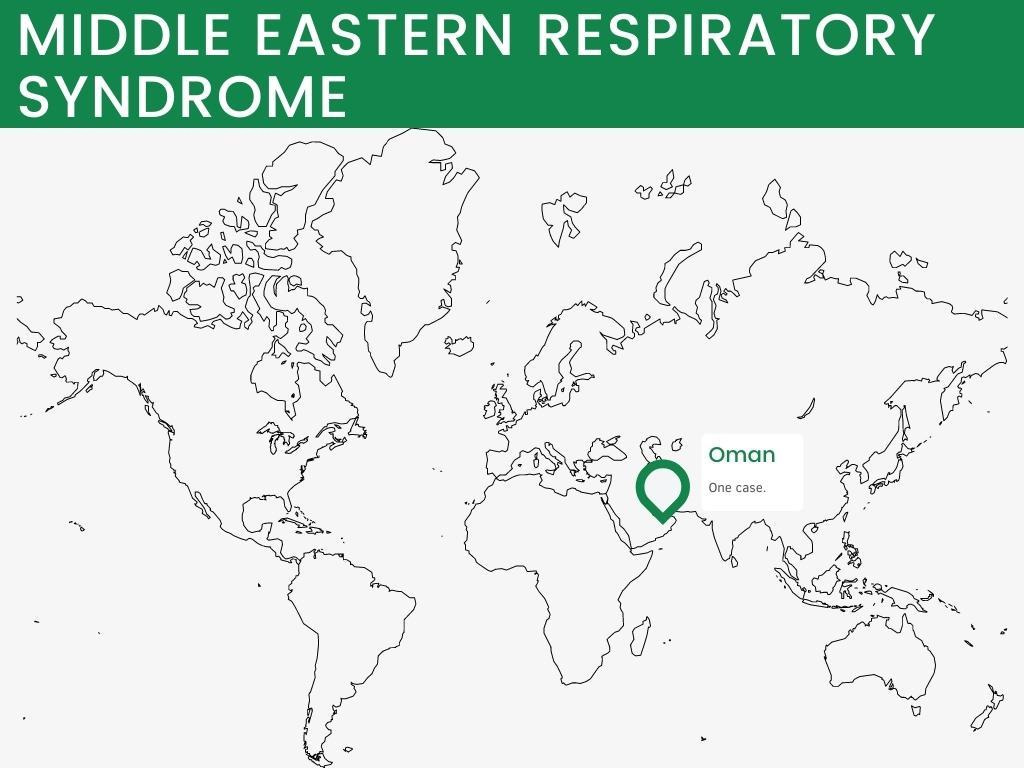
Affected Areas:
Oman in Western Asia.
Cases:
One case.
Details:
The infected had a history of direct contact with animals, such as sheep and goats, on a family farm.
How do people catch Middle East Respiratory Syndrome?
The disease is spread between animals and people. It is usually found in the Middle East and there are links to camels being the source. A person can also pass the disease on to another person via cough droplets.
Is there a vaccine for Middle East Respiratory Syndrome (MERS)?
No, there is currently no vaccine for this disease. Treatment can be supported to a patient from medical services such as the NHS depending on the patient’s condition.
13. Lassa Fever

Affected Areas:
Guinea in West Africa.
Cases:
2 cases were reported in April 2022.
Details:
There have been sporadic outbreaks of Lassa Fever in Guinea since the first case was reported in 2011.
How do people catch Lassa Fever?
Lassa fever is an animal-borne disease that is typically found in African rats. A person catches the disease if they come into contact with rat faeces or if they consume an infected rat.
Is there a vaccine for Lassa Fever?
There currently is no licensed or approved vaccination for Lassa Fever. However, it is worth nothing that a vaccine is currently in development and is being tested on numerous candidates.
According to the WHO, if you are suffering from Lassa Fever, an antiviral drug called ‘Ribavirin’ seems to be an effective treatment for this disease. If you are admitted to a hospital, make sure this is brought to the attention of the doctor, nurse or specialist.
14. Avian Influenza (Bird Flu)
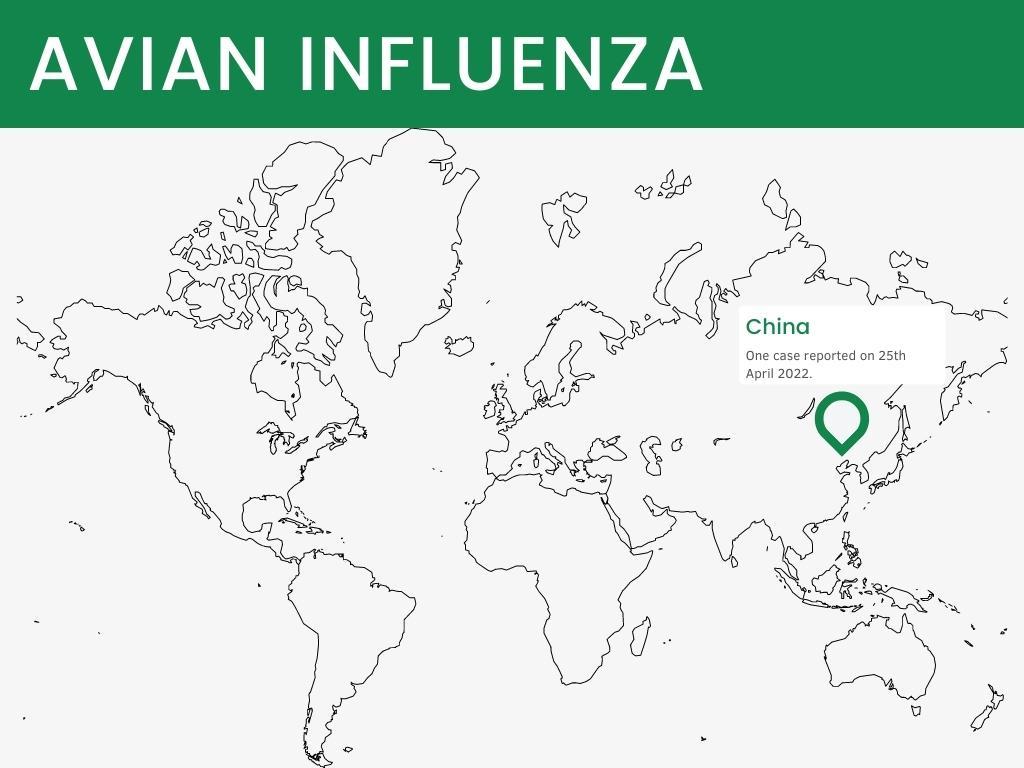
Affected Areas:
China.
Cases:
One case was reported on 25th April 2022.
Details:
This virus has not gained the ability to have a sustained transmission in humans. This means that the risk of the virus spreading internationally is low.
How do people catch Avian Influenza?
A person catches Avian Influenza when they have come into contact with the faeces or saliva of an infected bird.
Is there a vaccine for Avian Influenza?
There is currently no vaccine or readily available treatment for Avian Influenza.
15. Japanese Encephalitis
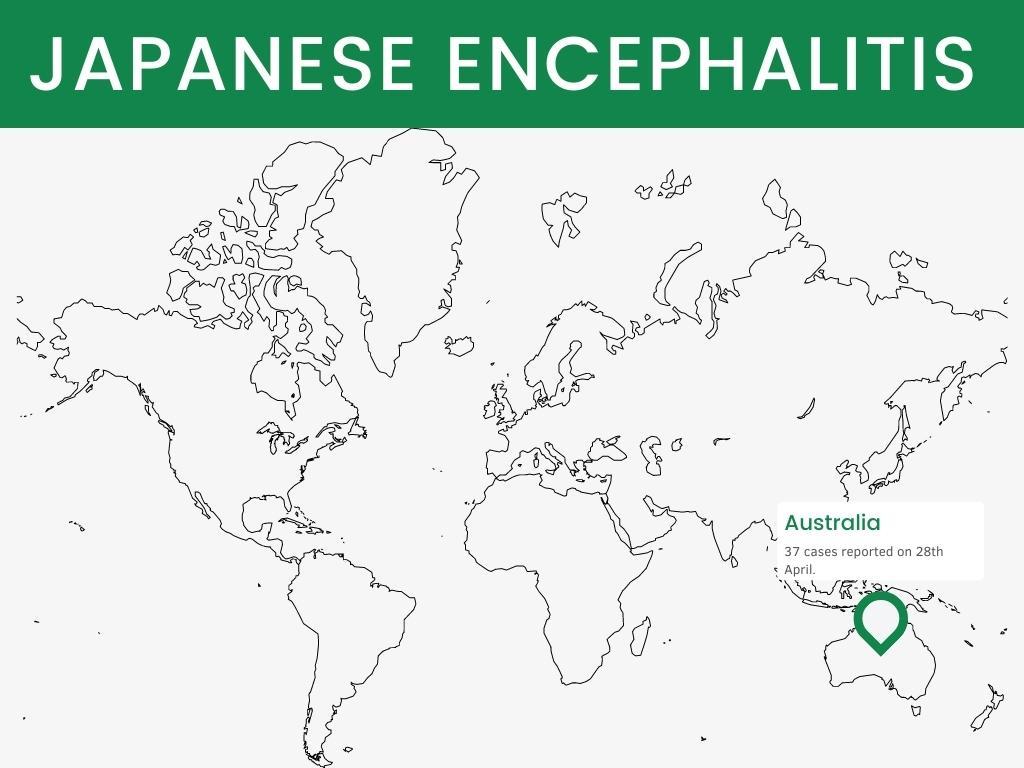
Affected Areas:
Australia.
Cases:
37 cases reported on 28th April.
Details:
The symptoms of the infected dated back to December 2021. Investigation into the root-cause of the disease is ongoing.
How do people catch Japanese Encephalitis?
People catch Japanese Encephalitis after being bitten by an infected mosquito. A mosquito catches Japanese encephalitis after sucking the blood from an infected animal. The main carriers of the virus are pigs, horses, and water birds.
Is there a vaccine for Japanese Encephalitis?
Yes, there is a Japanese Encephalitis vaccine that is available in the UK. You can book an appointment for this vaccine through our booking system at the bottom of this page.
16. COVID-19

Affected Areas:
Worldwide – Officially declared a global pandemic by the WHO on 11th March 2020.
Cases:
First reported case in China on 31st December, 2019. To this date, there have been a total of 590 million cases and 6.44 million deaths reported.
Details:
Europe and the United States have reached the endemic stage of the Covid outbreak. China is still pursuing a zero-covid strategy, which has helped to keep death rates low.
How do people catch COVID-19?
People can catch Coronavirus after breathing in the cough droplets of an infected person.
Is there a vaccine for COVID-19?
Yes, there are multiple types of COVID-19 vaccinations available from pharmaceutical companies such as Pfizer, AstraZeneca and Moderna. You can book an appointment for a COVID-19 vaccination through the NHS website.



